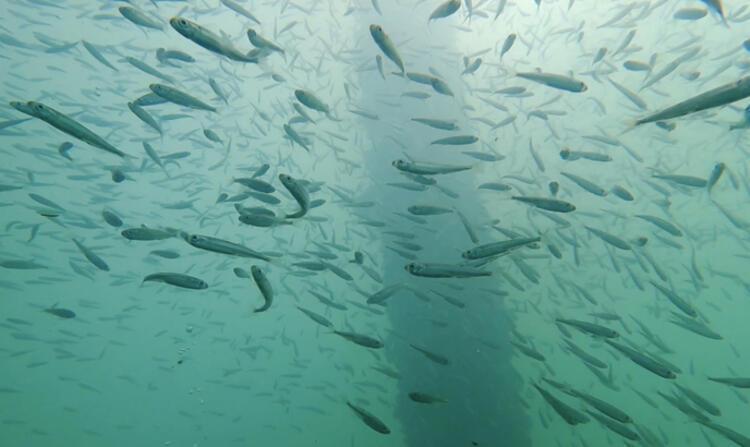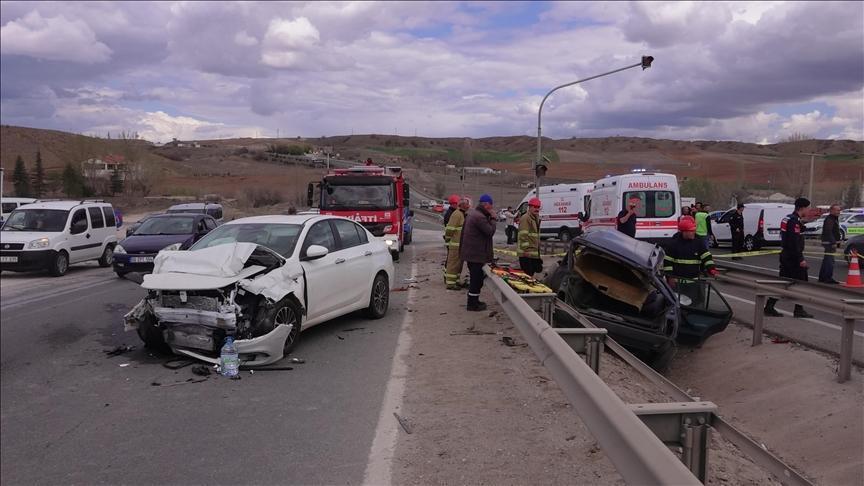Experts concerned about consuming fish from Marmara Sea
ISTANBUL

Experts are concerned about the consumption of fish coming from the Marmara Sea, which has been covered with a thick, foamy layer of marine mucilage since April, daily Milliyet has reported.
When asked if people could freely eat fish coming from the Marmara Sea, most experts and scientists hesitated to give a direct answer with a “Yes.”
Mucilage is a jelly-like layer of slime that develops on the surface of the water due to the excessive proliferation of microscopic plants called phytoplankton caused by untreated waste dumped in the Marmara Sea and climate change.
“I cannot say ‘You can eat’ or ‘You cannot eat.’ It is still a matter which needs research,” said Melek İşinibilir Okyar, a professor from a Science Board, which consults authorities responsible for the cleaning of the Marmara Sea.
Turkish authorities on June 8 launched its “largest and most comprehensive sea cleaning mobilization” ever to save the sea from the plague of excessive algae.
“I can just say that it is unfavorable to consume bottom sea fish and mussels,” she added.
Bülent Kesginler, the assistant of the dean from the Gebze Technical University, noted that fish could get intoxicated due to the mucilage. “The toxic in fish may transfer to man when consumed,” he warned.
The head of the Scientific and Technological Research Council of Turkey (TÜBİTAK) stressed that the more important question was how much fish should be consumed.
“How much should we consume? This is the right question to be answered,” Hasan Mandal said.
Mustafa Sarı, the head of the marine faculty in Bandırma Onyedi Eylül University, highlighted another aspect for discussion, saying, “There is mucilage in the Marmara Sea since 2007.”
“For years, we eat fish that swam by the mucilage. However, authorities monitored the sea with tests. So we need to be careful.”
Agriculture and Forestry Minister Bekir Pakdemirli said on July 10 that fish caught in the Marmara Sea could be consumed without any doubt.
















